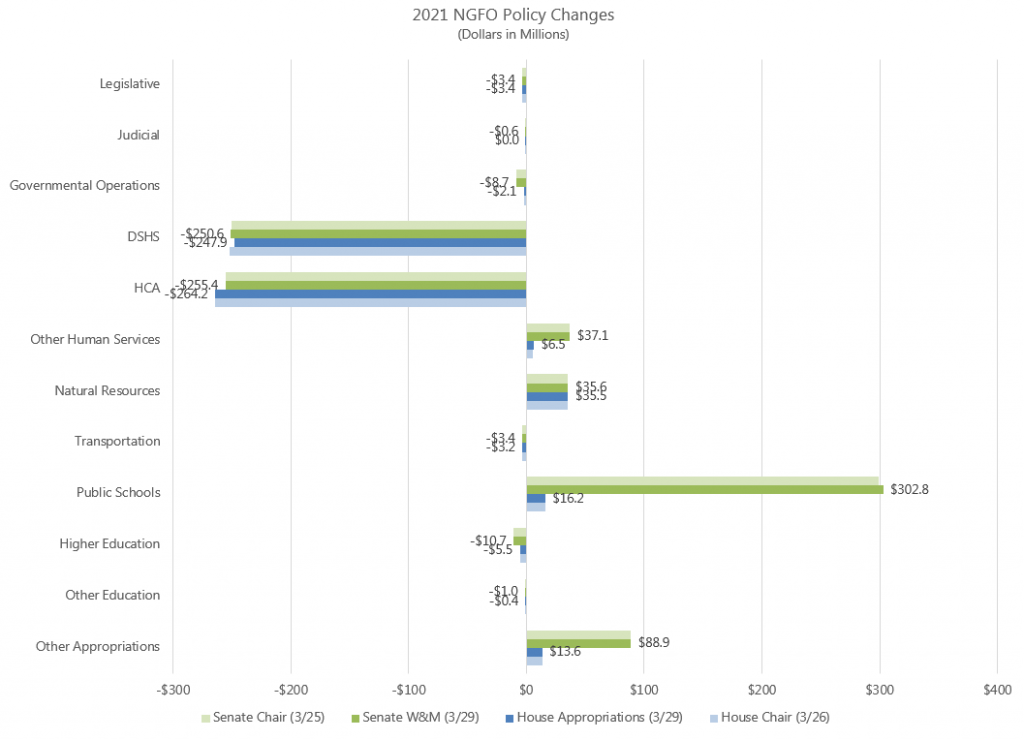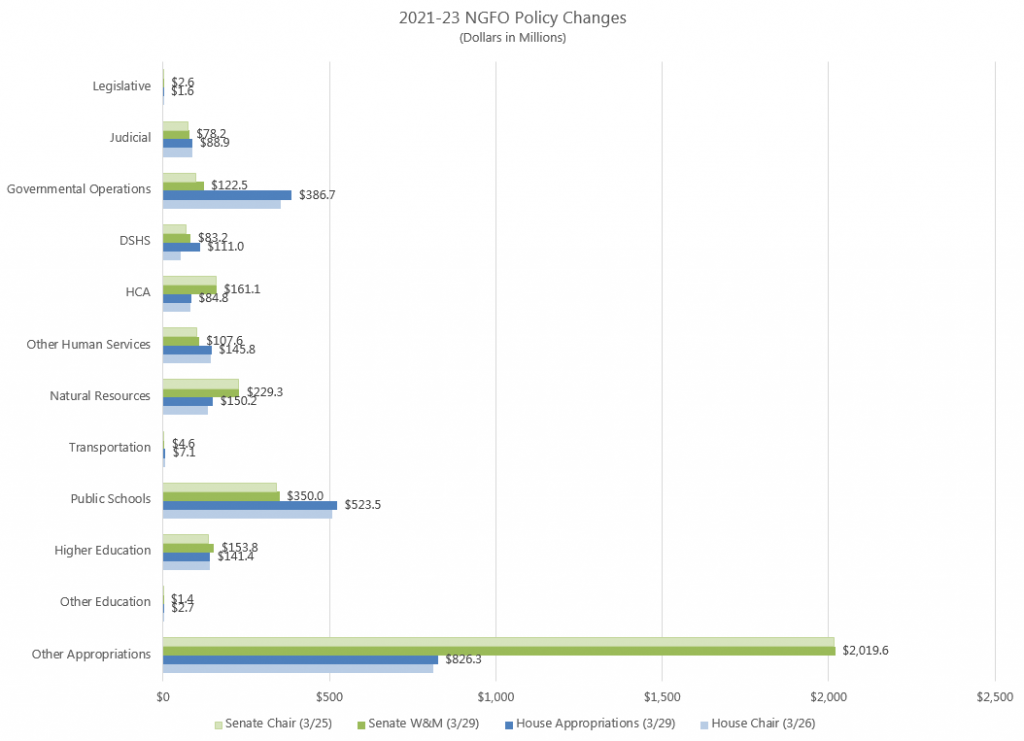9:46 am
March 31, 2021
On Monday, the Senate Ways and Means (W&M) Committee and House Appropriations Committee amended and approved their chairs’ proposed 2021 supplementals and 2021–23 operating budgets.
Compared to the W&M chair’s original proposal, the budget passed by W&M would increase spending from funds subject to the outlook (NGFO) by $3.2 million in 2019–21 and by $81.5 million in 2021–23. Incorporating these changes, the W&M 2021 supplemental would reduce policy level 2019–21 NGFO spending by $69.4 million. The biennial budget passed by W&M would increase policy level 2021–23 NGFO spending by $3.314 billion.
The major change in the 2021 supplemental is the addition of $3.3 million for revenue stabilization for educational service districts related to the pandemic.
For 2021–23, major additions include $15.0 million for the Office of Crime Victims Advocacy and $15.9 million for the guided pathways program (the House Appropriations proposal already included this funding). Other notable adopted W&M amendments include:
- The proposal includes $500.0 million for unemployment insurance rate relief. An amendment specifies that the associated policy bill is SB 5478.
- $9.0 million would be transferred from the general fund–state (GFS) to the workforce education investment account (WEIA). Under ESSB 5096 (the capital gains tax bill), a business and occupation tax credit would be provided to avoid double taxation, and the bill provides for a transfer from the GFS to the WEIA to offset any losses to the WEIA from the credit. The fiscal note assumes that the transfer for 2021–23 would be $9.0 million.
- A joint legislative unanticipated revenue oversight committee would be created.
The budget proposals adopted by W&M would reduce the unrestricted NGFO ending balance over four years to just $1 million.
Meanwhile, compared to the House Appropriations Committee chair’s original proposal, Appropriations would increase NGFO spending by $5.4 million in 2019–21 and by $142.7 million in 2021–23. With these changes, the Appropriations 2021 supplemental would reduce policy level NGFO spending by $454.9 million and the biennial budget would increase policy level 2021–23 NGFO spending by $2.470 billion.
Among the changes made by the Appropriations Committee is $14.4 million for a one-time cost-of-living adjustment for the Public Employees’ Retirement System (PERS) and Teachers’ Retirement System (TRS) plan 1 and $15.0 million for crime victim assistance funding.
Other notable Appropriations amendments include:
- The chair’s original proposal would have transferred $305.0 million from the GFS to the Washington rescue plan transition account. An amendment reduces that transfer by $150.0 million.
- $31.8 million in funding for various programs would be transferred from the WEIA to the GFS.
- The chair’s original proposal included $278.1 million for five additional school days in SY 2021–22. Now this funding could be used for additional school days, additional school contracts for staff supporting students most impacted by the disruption of in-person learning, professional learning for educators, buying assessment or data systems to show student progress, and “direct supports to students to improve school engagement and learning recovery.”
With the amendments made by the Appropriations Committee, the unrestricted NGFO ending balance in 2023–25 would be $103 million.
Tags: 2019-21 , 2021-23


